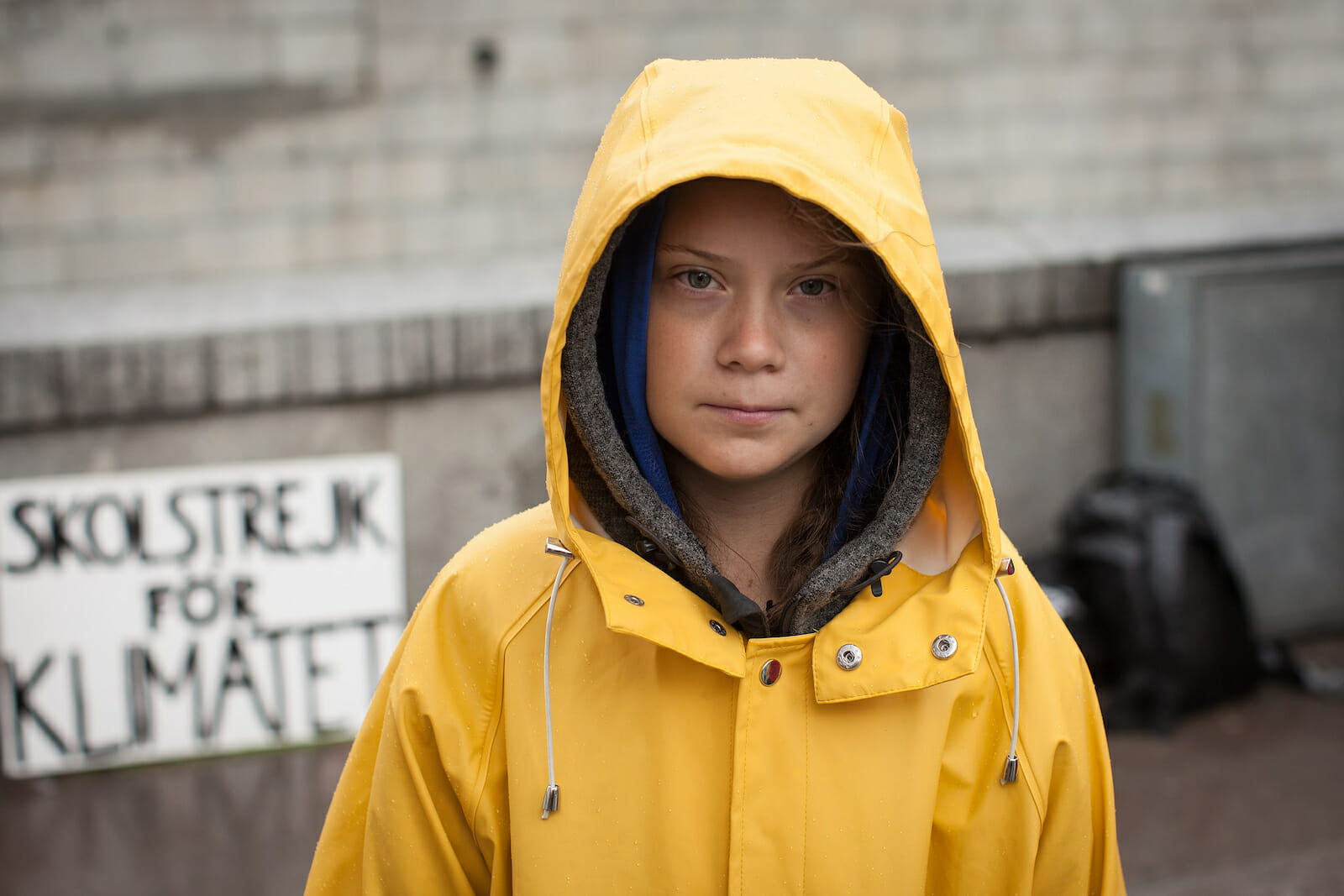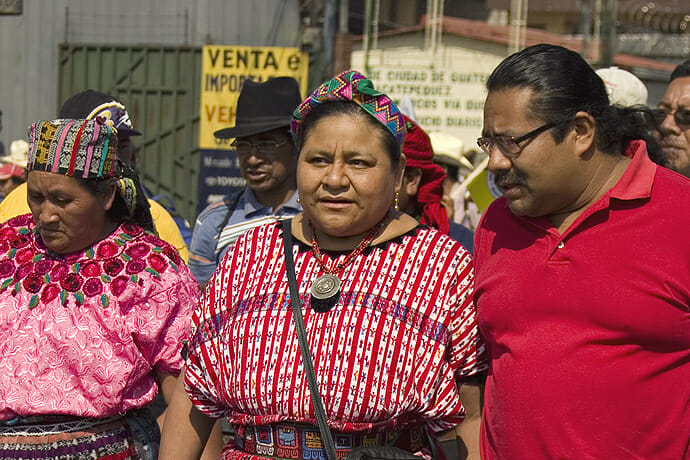
From Guatemala to Sweden: The Power of Young Women’s Voices
When fifteen-year-old Greta Thunberg decided to “school strike” in front of the Swedish Parliament in Stockholm a few months ago, nobody could foresee the movement she would kick start: A movement that would echo all around the world, from Stockholm to Chile. When the ruling generation fails to create change, the younger generation takes the stage and pilots the world in a new, exciting, and progressive direction. Thunberg is only one of many examples, of how grassroots initiatives can be impactful on a global scale, as well as how such progress can come from the most unexpected places and take the world by storm with bravery and determination.
Similarly to Greta Thunberg, Rigoberta Menchú Tum embarked on a journey in the 1970s to highlight the mistreatment of indigenous peoples in Guatemala and their work for social justice and ethno-cultural reconciliation based upon human rights and empowerment. Menchú was only fourteen years of age when she first started attending meetings with her father in different indigenous communities in Guatemala to spread the word of unity and solidarity and to also encourage them to fight against oppression experienced since the Spanish colonization in the 16th century.
Rigoberta grew up in a province called El Quiché, in a village without roads or cars. Both her parents and she worked at one of the fincas, a plantation owned by wealthy landinos, which was the name indigenous peoples had given men and women of white heritage. When Menchú grew up most of the indigenous families suffered from malnutrition and many of them did not surpass age fifteen. In her 1982 book, I, Rigoberta Menchú, an Indian Woman in Guatemala, Menchú describes the abuse and human rights violation she experienced growing up. “Most women who work picking cotton and coffee, or sometimes cane, have nine of ten children with them. Of these, three or four will be more or less healthy and can survive, but most of them have bellies swollen from malnutrition and the mother knows that four or five of her children could die.” She also explains how her father, mother, and brother were beaten, tortured, and killed at the hands of the landinos.

Menchú’s father was a major figure in the Comité Unidad Campesina (CUC), which was an organization dedicated to protecting peasants’ rights. He inspired his young daughter, Rigoberta, to unite twenty-three ethnic groups in Guatemala to fight towards one common cause, the distribution of land and human rights for all Indians. Menchú’s father gave her all the tools, inspiration, and determination to unite her people. She learned how to speak, read, and write in Spanish, as well as many other Mayan languages in order to simplify the organizing and uniting of communities from different parts of the country. Much like Rigoberta Menchú, Greta Thunberg has been able to unite students in over 100 countries around the world to join the green revolution with a call to action and activism against man-made climate change.
Between 1982 and 1984, at the height of Guatemala’s 36-year civil war, Menchú organized resistance to those who sought to hinder Guatemala’s struggle for indigenous human rights, by co-founding the United Republic of Guatemalan Opposition. Due to her bravery and determination to improve the life of indigenous people in Guatemala, Rigoberta Menchú received the Nobel Peace Prize in 1992, and used the prize money to start the “Rigoberta Menchú Tum Foundation.” She organizes projects that emphasize the importance of education, health care, community development, and human rights.
In the 1994 Guatemalan election, she focused on encouraging women and indigenous people to vote. As an active advocate of indigenous rights and ethno-cultural reconciliation, her legacy will live on long after she dies. Her revolutionary and progressive stance, with her will and strength, will help improve thousands of people’s lives for a long time to come.
Earlier this year the list of nominees for the 2019 Nobel Peace Prize was published, of which, Greta Thunberg was one. This shows that with heart, passion, determination, and guts, a sixteen-year-old climate change advocate from Sweden can have a platform to change the world. Inspirations such as Rigoberta Menchú and Greta Thunberg, despite their completely different personal stories, can come together and not just influence governmental, legislative change, but also unite people from different economic circumstances to fight together for human rights and environmental sustainability. Their stories may not directly go hand-in-hand, but their messages do: The power of one voice can jumpstart the winding path to a better future.

